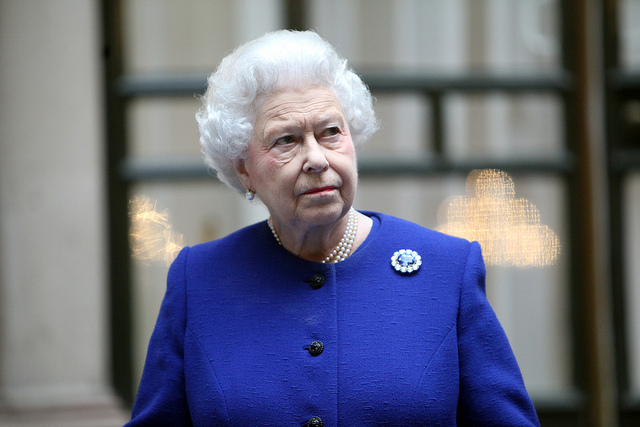Cambodian Prince to Oz: ditch the Queen to join ASEAN

An Australia seeking to join ASEAN is going to face tough questions about its interests and identity.
Some in Southeast Asia think an Australian republic would be a more natural fit for ASEAN than an Australia still pledged to the British monarch. A surprising proponent of that view is a leading member of Cambodia’s royal family, the former deputy prime minister and foreign minister, Prince Norodom Sirivudh.
In my conversation with the Prince, I found myself laughing as I exclaimed, ‘Your Highness, for Australia, you’re a republican!’
The equally cheerful response from Prince Norodom Sirivudh was that he’d have to apologise to his fellow royal, Queen Elizabeth. But, as Sirivudh said, there’s a lot involved in a discussion about whether the ‘white guys’ (Australia and New Zealand) can join the club of the ‘Asian guys’.
On Oz’s mindset and place in Asia, Sirivudh turned unprompted to the republic issue, pointing to Australia’s failed republic referendum in 1999:
I followed this very closely. The republican referendum is an ideal example—I’m sorry for Her Majesty the Queen—to distance [Australia] from the United Kingdom. You must pass somewhere through a referendum. It’s so important, it’s so fundamental. That one day Australia says it’s nothing to do with Her Majesty based in London, but we are a nation. It’s mindset again. Politically, nothing changes. But mindset grows from things like that. And in ASEAN, too, we think about this kind of mindset. I think a referendum must be an obligation of passage. It’s so important that you bring this to the Asian guys.
Cop that, John Howard! An Asian prince says Australia should drop the royals. Talk about a challenge to the Howard mantra that Australia doesn’t have to choose between its history and geography in making its future in Asia. The Howard no-need-to-choose line is good politics and a wonderful debating point. Yet diplomacy and strategy are always about choices. And the bigger the issue, the tougher the choices. Australia joining ASEAN might have to be added to the list of things that Canberra doesn’t want to think about until after Queen Elizabeth II departs the throne.
As I’ve previously argued, the ASEAN–Australia summit in Sydney in March will be the ideal moment to launch the long conversation about Australia joining ASEAN. On interests, it’s easy to list a host of reasons why Australia and ASEAN would be good for each other. Australia could bring much to the development of ASEAN’s community in its political-security, economic and socio-cultural dimensions.
Prince Norodom Sirivudh agrees this is a conversation worth having, while offering caveats and cautions. On the positive side, he says, the geographic veto—that Australia isn’t part of Southeast Asia—is no longer the end of the argument. Sirivudh says ASEAN has emphatically broadened its geographic reach through the creation of the East Asia Summit.
From interests, though, the Prince turns to culture and how Australia thinks of itself in Asia:
If I’m an Australian—do I feel more Asian, or do I stick with my Western identities, cultures, organisation system? It is a big debate. It is a long debate. It seems to us that you feel more and more Asian in terms of economics, in terms of political-security. Perhaps the feeling has grown. Perhaps the closer link is with Asia, with the Asia continent, with Asian states. But in terms of culture, in terms of the Australian consciousness, how they think of themselves as the white guys.
Sirivudh says that Australia identifies itself as a ‘US cousin’ and has a strong focus on the US alliance. The Australia–US alliance could be a barrier in ways that don’t apply to Thailand and the Philippines as formal US allies, and Singapore as an informal but committed US ally.
The Prince muses that China’s opposition would be important in preventing any ASEAN consensus on Australia. Sirivudh says China would say to friends such as Cambodia and Malaysia: ‘You must think twice. One more American ally in your family?’ He says Australia would face the suspicion that it was acting for the US, not for itself. ‘We work on consensus’, Sirivudh says of ASEAN. ‘Only one disagrees, everything stuck. So the chance is very, very thin—based on consensus.’
Would Australia have to change the way it does foreign policy as well as ditch the Queen?
‘You have to show that you are first, Australian’, Sirivudh replies. ‘You are friends with the US. And you are friends with China. You are not the US proxy.’
Sirivudh thinks a slow process in which Australia took the half step to become an ASEAN observer is an interesting idea. When, as Cambodia’s foreign minister, he launched Cambodia’s effort to enter ASEAN, the status of ASEAN observer was the useful intermediate step. Or, as others suggest, ASEAN could create a new category of partner/member for Australia and New Zealand.
Before such mechanics, however, comes the mindset. Australia will have to convince itself. And ASEAN. And China.